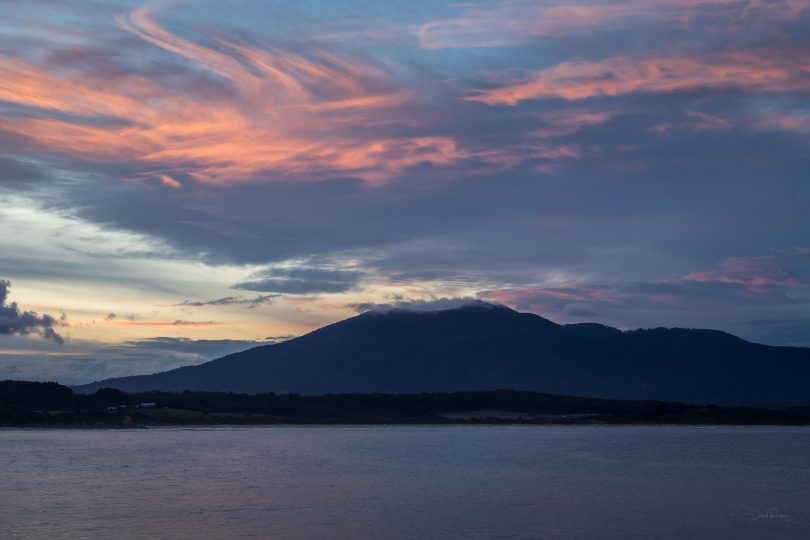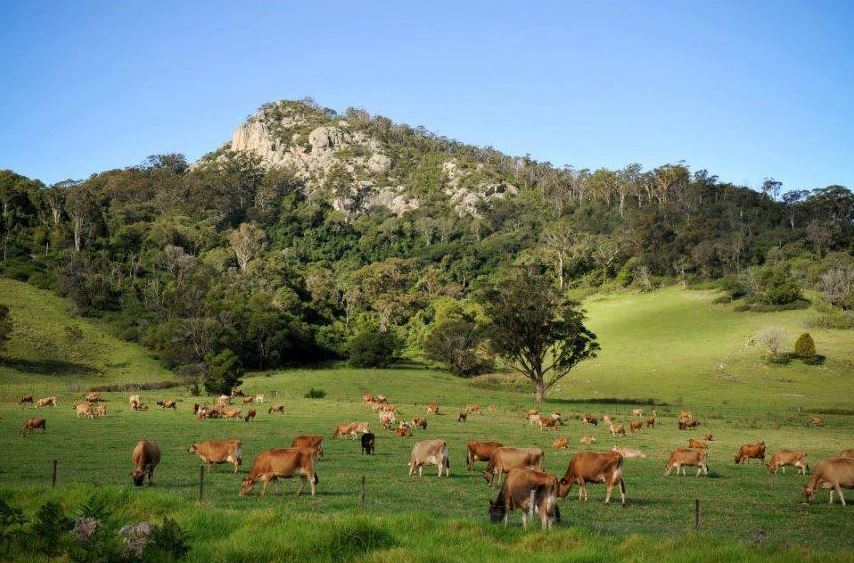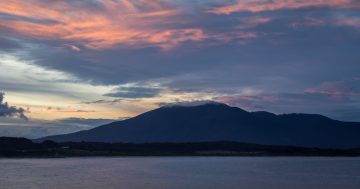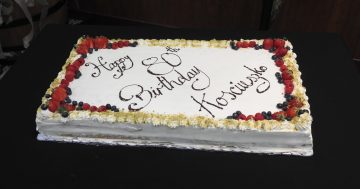
Mount Dromedary’s traditional name of Gulaga may have equal status with its European name on maps and signage if a proposal is passed. Photo: David Rogers.
Place names that have been used for thousands of years may finally be officially recognised by the NSW Government if a National Parks and Wildlife Service proposal is given the go ahead.
Familiar NSW Far South Coast landmarks, such as Mount Dromedary, may soon appear on maps and signage with dual names, officially recognising the names given by First Nations people.
Community feedback is being sought on proposals from the National Parks and Wildlife Service to give dual names, in both English and Yuin languages, to three mountains and an island between Bega and Narooma: Mount Dromedary/Gulaga, Little Dromedary Mountain/Najanuka, Mumbulla Mountain/Biamanga and Montague Island/Barunguba.
The First Nation names are already widely used in the Far South Coast community, but if passed, the proposals mean that in the government’s eyes they would share equal status with the European names.
If such a proposal is successful, signposts, maps and directories relating to the area will have both names.
“Through place naming, communities have the opportunity to unlock past stories, preserve traditions, reawaken language and provide a sense of belonging and identity,” said Narelle Underwood, chair of the NSW Government’s Geographical Names Board (GNB).
“Dual naming supports recognition and revival of Aboriginal languages.”

Jersey cows graze in the shadow of Little Dromedary Mountain/Najanuka. Photo: Eurobodalla Tourism Facebook.
There is a rich cultural history to all the mountains and the island.
Gulaga, northwest of Central Tilba, is a sacred mountain. Gulaga is the spiritual mother of the Yuin peoples and is connected to her two sons, her youngest, Najanuka, and eldest, Barunguba.
Najanuka, a mountain south of Central Tilba, was only permitted to be a short distance away from her while Barunguba, the island southeast of Narooma in the Tasman Sea, left home and travelled across the ocean.
The mountain Biamanga, at Brogo, is also sacred to the Yuin peoples, as not only was it the ‘dreaming place’ of Jack Mumbler – who was also called Biamanga – but also was a place where sacred and secret initiations and ceremonies were held.
The GNB says a dual name can be assigned where there is strong written or oral evidence of a pre-existing First Nations’ place name.
The name will sit alongside the non-First Nations title, with each having equal status.
However, whichever name for the same feature that is most likely to be used by the local community is to be presented first in a sequence.
For more information or to have your say on the proposals for Mount Dromedary/Gulaga, Little Dromedary Mountain/Najanuka, Mumbulla Mountain/Biamanga and Montague Island/Barunguba, visit the GNB’s current proposals website here.
Written submissions can also be mailed to the Secretary, Geographical Names Board, 346 Panorama Avenue, Bathurst, NSW 2795.
Submissions close on 17 July, 2021.
The NSW Government has had a dual naming policy for geographical features and cultural sites since 2001.









